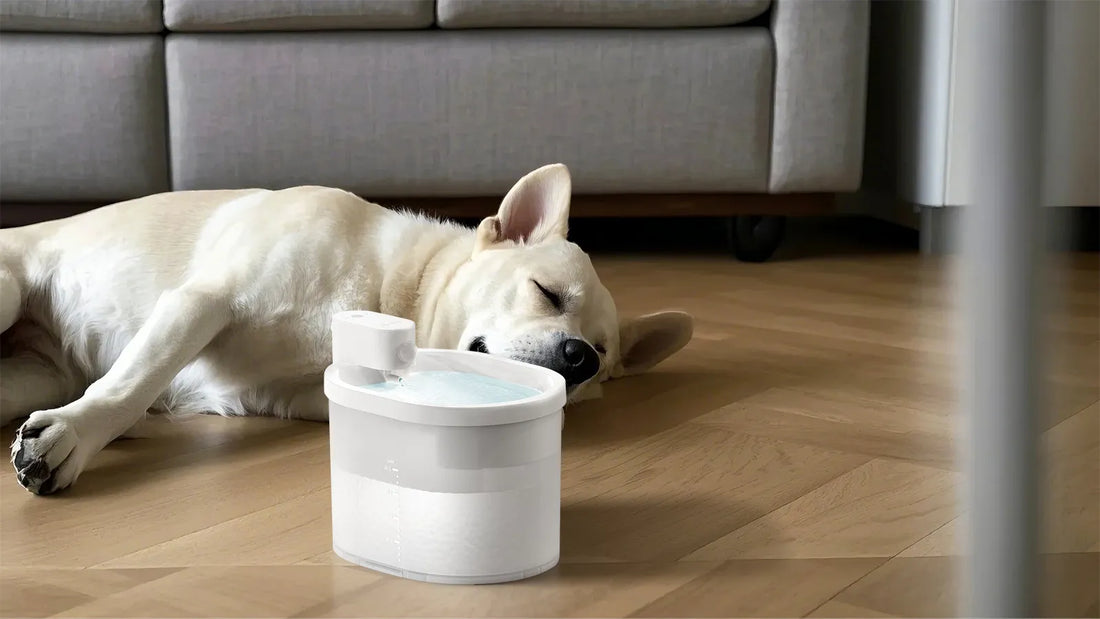If you've ever noticed your cat throwing up water, you know how concerning it can be. While occasional vomiting might not be unusual for cats, frequent or persistent episodes can indicate an underlying issue. Understanding the causes, knowing when to seek veterinary help, and implementing preventive measures are crucial for your cat's well-being.
Common Causes of Cats Throwing Up Water
There are several reasons why your cat might be throwing up water. Some of the most common causes include:
- Hairballs: Cats groom themselves regularly, and this can lead to the ingestion of hair. When hair accumulates in their stomach, it can cause vomiting, often accompanied by water.
- Dietary Issues: Sudden changes in diet, eating too quickly, or consuming spoiled food can lead to vomiting. Watery vomit might be a sign that your cat's stomach is irritated.
- Dehydration: Ironically, dehydration can cause cats to throw up water. If your cat isn't drinking enough, their body might react by expelling water when they do consume it.
- Infections or Illnesses: Viral or bacterial infections, as well as conditions like kidney disease or diabetes, can cause vomiting in cats. Watery vomit might be a symptom of a more serious health issue.
- Stress or Anxiety: Cats are sensitive creatures, and stress can manifest in various ways, including vomiting. Changes in their environment, such as moving to a new home or the introduction of a new pet, can trigger this response.
When to Seek Veterinary Help
While occasional vomiting might not be a cause for alarm, there are certain signs that indicate it's time to consult a veterinarian:
- Your cat is vomiting frequently or for an extended period.
- The vomit contains blood or a strange color.
- Your cat shows signs of lethargy, loss of appetite, or weight loss.
- There are additional symptoms like diarrhea, excessive thirst, or difficulty urinating.
If you notice any of these signs, it's essential to seek professional advice promptly. Early intervention can prevent complications and ensure your cat receives the appropriate treatment.
Immediate Steps to Take
If your cat is throwing up water, there are a few steps you can take to help them feel better:
- Monitor Their Behavior: Keep an eye on your cat's behavior and note any changes. This information can be valuable for your veterinarian.
- Provide Fresh Water: Ensure your cat has access to clean, fresh water at all times. Dehydration can exacerbate vomiting, so it's crucial to keep them hydrated.
- Adjust Their Diet: If you suspect dietary issues, consider feeding your cat smaller, more frequent meals. Avoid sudden changes in their diet and opt for high-quality, easily digestible food.
- Create a Calm Environment: Reduce stress by providing a quiet, comfortable space for your cat. Minimize disruptions and maintain a consistent routine.
Long-Term Prevention Strategies
Preventing your cat from throwing up water involves addressing the root causes and maintaining their overall health. Here are some long-term strategies to consider:
- Regular Grooming: Brush your cat regularly to reduce the amount of hair they ingest during grooming. This can help prevent hairballs and associated vomiting.
- Balanced Diet: Feed your cat a balanced, nutritious diet that meets their specific needs. Avoid giving them table scraps or foods that might upset their stomach.
- Hydration: Encourage your cat to drink water by providing multiple water sources around your home. Some cats prefer running water, so consider using a pet fountain.
- Routine Veterinary Checkups: Regular checkups can help detect and address health issues before they become serious. Your veterinarian can also provide tailored advice for your cat's needs.
- Stress Management: Identify and address potential sources of stress in your cat's environment. Provide enrichment activities, such as toys and scratching posts, to keep them mentally stimulated.
Understanding Your Cat's Health
Every cat is unique, and understanding their individual health needs is key to preventing issues like vomiting. Pay attention to their behavior, appetite, and overall demeanor. If something seems off, don't hesitate to consult your veterinarian. Early detection and intervention can make a significant difference in your cat's quality of life.
By taking proactive steps and addressing potential causes, you can help ensure your cat stays healthy and happy. Remember, your veterinarian is your best resource for advice and support when it comes to your cat's health.
If your cat is throwing up water, don't ignore it. Understanding the causes and taking appropriate action can make all the difference. With the right care and attention, you can help your feline friend feel their best and prevent future episodes of vomiting.














